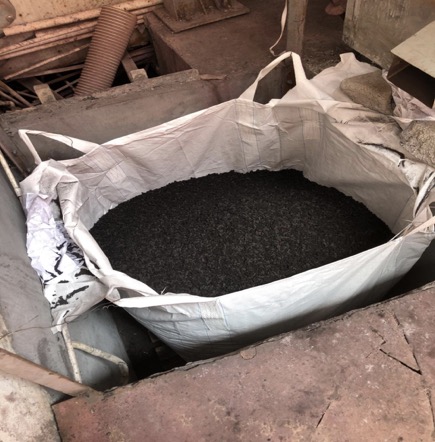Pharmaceutical Sludge Application Case
The composition of pharmaceutical sludge is complex, and the composition and characteristics of the sludge components of different pharmaceutical plants vary greatly, but their common feature is the difficulty of processing. The reason is that the sludge contains a variety of organic matter, heavy metals, antibiotics, etc., conventional physicochemical + biochemical treatment is difficult to effectively remove toxic and harmful substances, and some of the components in the sludge will also have inhibitory effects on the process effect.
In addition to technology research on the source reduction treatment of pharmaceutical sludge, the thermal drying of sludge can effectively achieve the goals of sludge reduction, harmlessness and stabilization, but the operation of conventional thermal drying process equipment Complex, large area, high investment cost, low safety factor and other shortcomings.With the development of technology and the emergence of new applications, low-temperature thermal drying of sludge has replaced the traditional thermal drying process and has become a new direction of sludge treatment and disposal.
The pharmaceutical sludge undergoes preliminary treatment and mechanical dehydration to become a mud cake with a relatively high water content. The low-temperature thermal drying process is used to reduce and stabilize the sludge, and incineration or blending to achieve harmless or even resourceful disposal.Compared with the traditional thermal drying process, the low-temperature sludge drying equipment has simple equipment integration and a low-temperature closed drying method, which avoids the generation of exhaust gas and emissions, eliminates the potential safety hazards such as dust and combustible gas explosion, and can be automated. Thereby greatly reducing equipment investment costs.
Practical application case

Project Introduction
The daily production of sludge from Jilin Pharmaceutical customers is 40-60 tons. Due to the difficulty of dehydration, the moisture content is about 80%. The sludge moisture content is required to be reduced to about 30% to increase the calorific value and sent to thermal power plants for incineration.
Project Analysis
Detecting that the sludge moisture content of the pharmaceutical plant drops below 40% and has a higher calorific value, can be combined with burning, saving fuel, and at the same time solves the problem of solid waste disposal.
Chemical process.Considering the high moisture content and destabilization of dehydrated sludge, the treatment process is set up with feed back mixing, and carbon powder is added in the middle to further increase the calorific value.
After the evaluation of the comprehensive plan, two sets of low-temperature drying units share a feed system with a return mixing process, the total operating power is less than 500kw, the average daily processing capacity is 50 tons, and the weight of the sludge after drying is reduced to more than 10 tons , The reduction is more than 70%, and the comprehensive energy consumption per ton is only 200 ~ 300kw.h.
The water in the sludge is separated by steam re-condensation, which effectively reduces the content of various pollutants.


